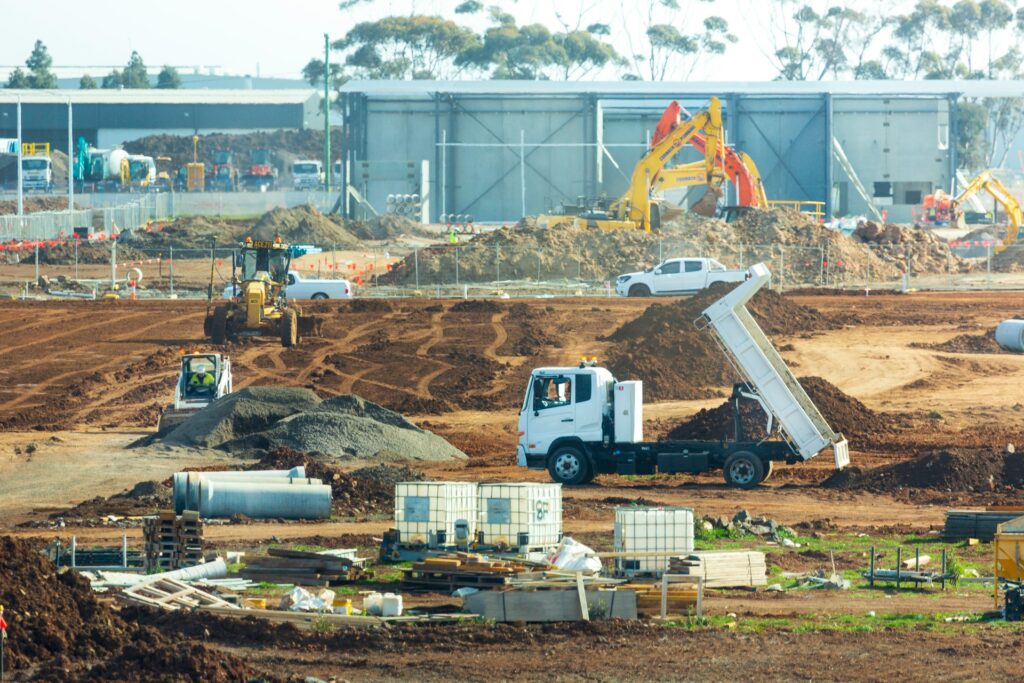Construction projects vary in scope and scale. They can be as small as a residential deck or as complex as designing and building a multi-unit complex.
Either way, these projects require equipment. Choosing the right tools and equipment, from hand and power tools to heavy machinery, can help ensure a smooth, successful process.
Whether you’re a builder, a site supervisor, or the construction company owner, here is how to choose the right construction machinery — and secure it.
Assess Project Scope and Scale
Step one is determining the scope and scale of the project.
Ask yourself the following:
- What is the project’s purpose — what do you want to achieve?
- What are the deliverables? Make a list of objectives and target goals.
- What budget do you have, and what deadlines are being discussed?
- Are there any operational or logistical constraints?
This initial process helps you plan, ensuring expectations are met based on budgets, deadlines, machine availability, etc.
Read more: Contract Management in Construction Projects
Consider Terrain and Environmental Factors
To choose construction machinery, you’ll need to understand the category of equipment you need to source. For example, if you need to move earth or dig, you may start by looking into buying or renting an excavator, a backhoe, a bulldozer, a grader, etc.
Many machines can serve multiple purposes on-site based on their attachments, which is something to consider. For example, switching the bucket for an auger on a backhoe can help you achieve two goals with one machine — to drill and move material.
Consider other environmental factors like the terrain — is it soil or rock you need to move? Is the site small or large — and will that create obstacles concerning the size of the machinery?
Evaluate Budget and Cost-Effectiveness
Construction machinery helps boost efficiency and productivity. For some projects, completion would be near impossible without the implementation of heavy machinery.
So, if your budget is tight, you must consider what is absolutely necessary.
You will also need to factor in fuel costs, possible maintenance, insurance, transportation costs, etc. The ultimate goal is to get machinery for a fair price based on its performance. While this machinery is a significant upfront cost, as long as you have work lined up, it will pay for itself. You may want to calculate the potential ROI of your machinery to determine its intended lifetime value.
Depending on your budget, purchasing equipment might make the most sense — especially if you take on several large jobs a year. This investment can provide many ongoing benefits, including tax deductions and eligible bonus depreciations.
Determine Operator Skill Level
Do you have the crew required to operate the machinery you need? Depending on your role and the job, you may consider hiring a sub-contractor who has their own machinery, paying them a set or hourly rate to complete that portion of the job.
For example, if you put in a foundation for a home or building, you could hire an excavating company to dig. That way, the skill set of the operator and machinery come within that package.
Related: Building Strong Relationships with Subcontractors in Construction
Alternatively, suppose you have someone on your crew who can operate heavy machinery because they are certified. In that case, renting the equipment and paying them an hourly rate may be a more budget-friendly route — one that will likely be less than hiring an outside crew to come in.
When making such a decision, other variables must be considered, like your budget, the environment you’re working in, and the scope of work.
Research Reputable Brands and Models
Some companies are known for being the top construction equipment manufacturers. Here are some of those big names:
- Caterpillar (USA)
- Komatsu (Japan)
- XCMG (China)
- John Deere (USA)
- Hitachi (Japan)
Take the time to dive deeper into the brands you’re interested in, focusing on the cost of ownership (including fuel efficiency), product offerings, attachments and versatility, brand familiarity (focusing on serviceability), and safety features.
Also, consider the warranty that may only be offered when buying machinery through a dealership. Discuss this with the sales team to see what’s covered and for how long.
Be Confident in Your Decision
Purchasing construction machinery is never something to rush. There are many variables to consider, and the price tags are high. So, do your research and make informed decisions when choosing construction machinery. Being mindful of what you purchase will help you optimize performance and minimize costs — boosting each project’s bottom line.
Check out some of these industry-related resources:
- New Construction Technology Releases
- Sustainable Practices in Construction Management
- The Future of Construction Management: Trends and Predictions
If you need construction employment services, MRINetwork can help. Often, the ability to maximize the value of construction machinery is based on the top talent using it. MRINetwork will support your team’s growth and construction management success. Contact us today — we’ll help you develop a strong workforce.

Connect with MRINetwork